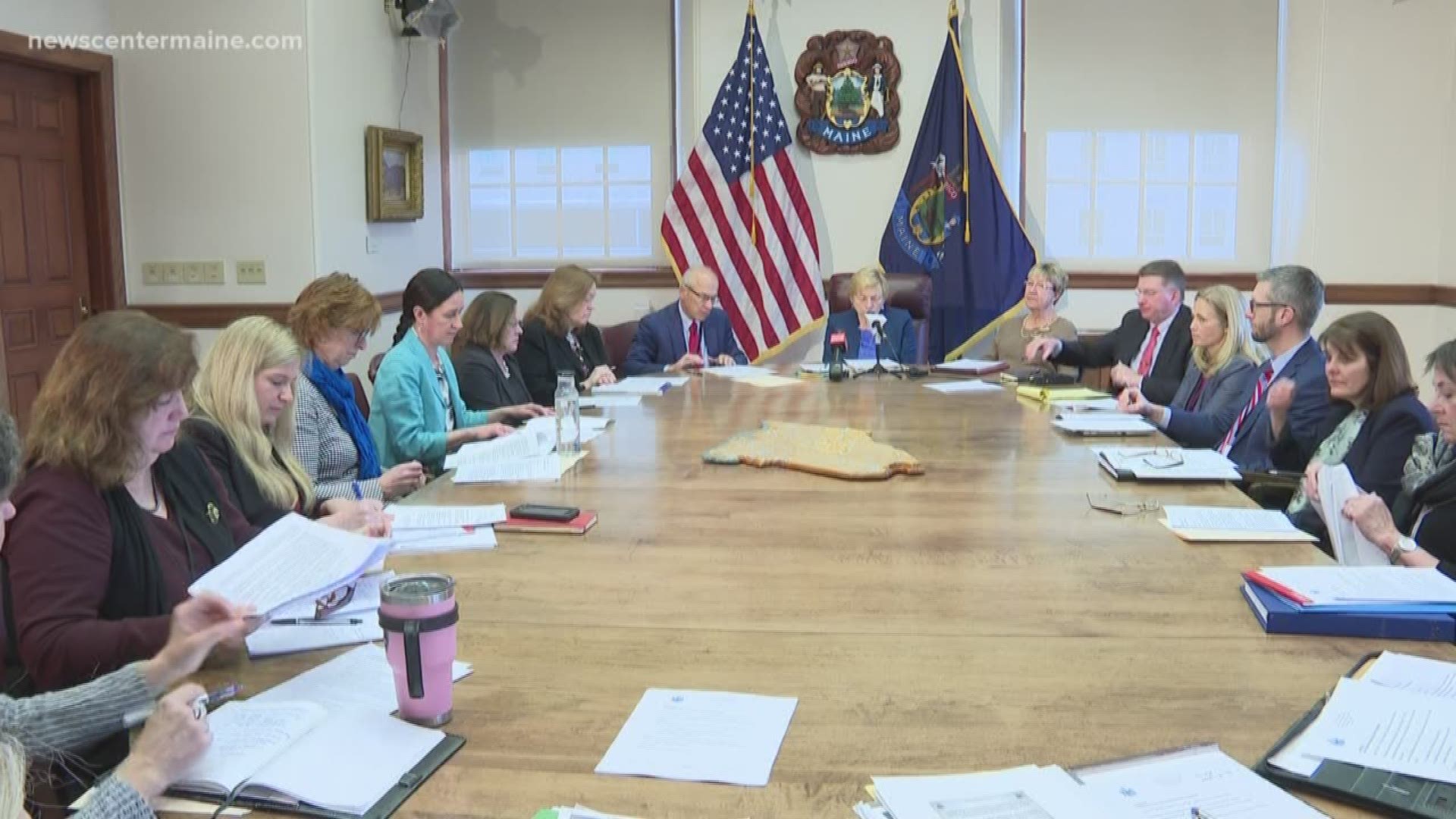AUGUSTA, Maine — The man leading Maine’s fight against opioid drug addiction says there have been some positive signs, but there is still a long way to go.
Gov. Mills joined opioid director Gordon Smith on Wednesday for the first meeting of a special drug abuse prevention and recovery cabinet. It includes the Governor’s regular cabinet -- the commissioners of all state agencies -- plus the Attorney General, the Chief Justice, and two members of the public who have faced addiction issues themselves.
The cabinet’s job is to open up communication between state departments to make sure the needed steps are being taken to improve treatment and prevention and reduce addiction.
Smith said the preferred method of addiction treatment now is using suboxone, and that for the first time all emergency rooms and jails will be providing that medically assisted treatment for opioids by the end of the year. Smith said making treatment more easily available is a critical step, but it's only one of many needed.
"I have a special interest in those 904 babies born last year drug affected, their mothers abusing substances," Smith said. "That’s down over 100 from two years ago. But 900 babies -- we only have 13,000 births. It's like overdose numbers -- yes, they will probably be down when we get the final report for 2018, but we’re still losing somebody every day."
The members of the Governor’s cabinet also talked about how addiction could be hurting Maine’s economy by keeping thousands of people out of the workforce, at a time when businesses are struggling to find workers.
One added step the Mills administration is taking is aimed at making the overdose antidote Narcan more easily available.
Smith said they plan to begin installing Narcan dispensers in some public buildings, just as automatic defibrillators are installed. The Attorney General’s office is also continuing to provide Narcan to a number of police departments to make sure it is widely available.

